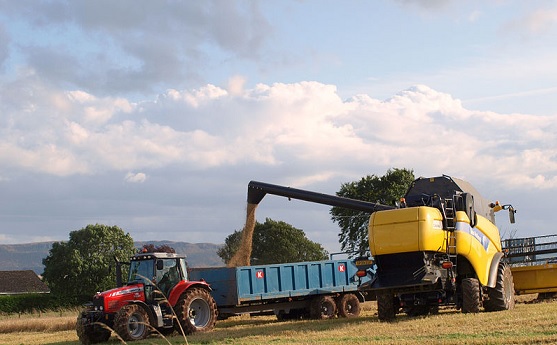
Scottish farming’s share of the UK’s CAP budget is to remain unchanged, following the announcement on internal budget allocation.
Despite deep disappointment at that announcement, the complex deal includes commitments to review the internal allocation of UK CAP funds by 2017 and the potential for Scotland to extend the amount of coupled support it can make available to farmers – both key lobbying points for NFU Scotland in recent weeks.
Under new CAP arrangements starting in 2015, Scottish farmers are likely to receive support levels per hectare in 2015 that are well below those in the rest of the UK and much of Europe. However, Europe has mapped out a convergence timetable that asks member states to bring all payments closer to an EU average figure of €196 per ha by 2019. In Scotland, that figure is currently closer to €100 per ha.
NFU Scotland believed that this budget allocation presented an opportunity to start that process. While that hasn’t happened, the Union has a written commitment from Secretary of State Owen Paterson that there will be a review of internal allocation of CAP funds in 2016, to be concluded in 2017. That commitment opens up a new negotiation with Westminster, one that NFUS believes must initiate changes in budget allocation from 2017 onwards.
With Scotland’s beef herd and hill ewe numbers falling, NFU Scotland has also been seeking help from Westminster in extending the proportion of the Scottish budget that can be coupled to vulnerable sectors. In discussions with the Scottish Secretary of State Alistair Carmichael today, the Union understands that a deal is available that could see our potential coupled payments rise from eight percent to ten percent of our budget.
NFU Scotland President Nigel Miller said:
“It is a bitter blow that we have not secured an immediate uplift in our budget allocation. While have been unable to secure a key element from this deal, there is enough within it and the commitments made that could deliver real, long-term benefits to Scottish farming if Scottish Government and Westminster can agree.
“The UK must follow Europe’s clear steer on budget convergence and put in place a process that will eventually see arable producers in Berwickshire receive the same level of support as those in Norfolk or hill farmers in the Highlands get equivalent support to those farming in the Lake District.
“This budget allocation was a missed opportunity to start that convergence process but there is a clear commitment from Owen Paterson that a review of the internal allocation of UK CAP funds will start in 2016. That must start a process of convergence in 2017 that moves more money to Scotland in keeping with EU objectives.
“We firmly believe the ability to couple an element of our support payment to the vulnerable beef or hill sheep sectors could be a useful tool in helping us deal with a low budget and the extremes of farming intensity that exist across Scotland.
“Without altering Scotland’s share of the overall budget, having the ability to base coupled payments on a UK ceiling rather than a Scottish ceiling, gives greater scope and flexibility to Scotland’s coupling options. In that regard, Alistair Carmichael has made an offer that will allow Scotland the ability couple up to 10 percent of its budget rather than 8 percent limit currently set.
“That is a welcome flexibility and we must decide how best Scottish farming could target that uplift to benefit our industry.
“The slight uplift in the Pillar 2 funding comes as a relief, given that we were facing a budgetary cut. That should now take off some of the pressure for a transfer of funds from direct support into the rural development pot.”
